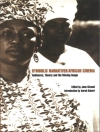In Latin America, the production of telenovelas and TV series about the region’s recent and traumatic past has grown considerably in the last 20 years, affecting societal perceptions of the past, historical consciousness, and political culture. While these TV products are usually perceived as trivial, they do provide a historical framework to a wide audience, which finds it easier to relate to the national past through fiction than through history books, journalistic articles or documentaries.
Latin America’s Contested Pasts in Telenovelas and TV Series analyzes the historical culture of Latin American society embodied in telenovelas and TV series from the 1960s to this day. It compiles regional case studies on the televised representation of 20th-century dictatorships in Chile, Argentina, and Brazil, as well as the war against drug trafficking and the armed conflict in Colombia. Highlighting the political and social relevance of fictional television, the contributions offer interdisciplinary insights into its discourses and narratives, from the heroization of criminals to the search for reconciliation and the construction of a historical memory.
About the author
Monika Contreras Saiz and Stefan Rinke, Institute for Latin American Studies / Freie Universität Berlin, Germany.












